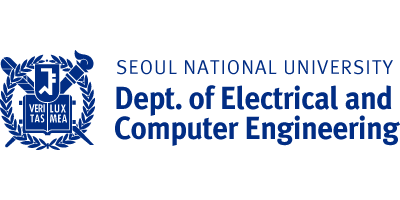Prof. Sang Kyun Cha, “Innovation speed is too slow…no authority capable of making strategic decisions” (The Asia Business Daily, 20181029)
Expert in Big Data and AI “Absence of leadership hinders the next level growth” “China shows faster innovation than Korea”
Sang Kyun Cha, professor of SNU
The invited lecture hosted by the Fiscal Innovation Bureau of Ministry of Finance and Economy at the beginning of this month held great significance. It was because the main keyword of the lecture was what the government has been emphasizing, ‘Digital Hegemony and the Fourth Industrial Revolution’. The Fiscal Innovation Bureau has been organizing the lecture to assess the direction of innovation and perceive the current trends. The lecturer was professor of SNU electrical and computer engineering Sang Kyun Cha, who is known to be an expert in the field of Artificial Intelligence (AI) and Big Data.
In the recent interview with the Asia Business Daily, professor Cha thought that the government’s invitation as a lecturer was part of the government’s effort to ‘start realizing’. If the concept of the fourth industrial revolution remained vague until now, the government finally started to contemplate on how to realize the era of digitalization and fourth industrial revolution.
However, he could not conceal his doubt about the determination of the government and related entities to push forward the fourth industrial revolution. He pointed out that it will take a while for government entities to take action after participating in the lecture and that he is not sure how important the congress would think the change toward the fourth industrial revolution is in attracting more votes. He seemed to worry that his lecture on innovation for government officials will remain as an armchair theory.
Professor Cha thinks ‘speed’ is the biggest problem in Korea’s innovation. He mentioned his main interest, the development speed of China’s fourth revolution industries, and pointed out the ‘turtle speed’ of Korea. He took out the slides that he used at the presentation for officials in the Ministry of Finance and Economy and said, “Chongan Insurance of China signed 10 billion insurance contracts in 4 years since its foundation and the world’s biggest Starbucks is located in Shanghai. Alibaba sold 1 million artificial intelligence speakers in only 9 hours.” This is the result of a combination of Big Data and marketing strategies. Professor Cha questioned how well our insurance companies could compete if companies like Chongan Insurance spread its market to Korea.
He also mentioned a personal experience related to the speed. Professor Cha, currently serving as director of SNU Big Data Center, complained that it took 5 years to establish a professional graduate school in the field of Big Data. He said, “I’ve been running around on my foot to establish the Big Data graduate school and to receive fundings to recruit 15 full-time professors. The budget did not meet 1.5 billion won. The actual foundation will be in two years so it took a total of 5 years. This is even enough time to establish two companies. State University of the United States, UC Berkeley, is known to have a slow progress but I think it’s still faster than us.”
He also told us another story. He cynically said, “At some meeting, we proposed to make a fund worth 200 billion won and invest in a company. We only received a doubtful reply questioning if it will be possible to make it in time. What Korea wants is only the speed of growth and revenue.”
Talking about the reason of lagging behind in innovation, he was doubtful about how desperate the government, congress, and large enterprises are to change our country. The organizations with vested power and properties are not perceiving the need for change.
About the limitations he felt when he met government-related officials on the matter of Big Data, he pointed out the fact that there is no authority that can make strategic decisions. He criticized by saying, “To seriously support the growth of any field, the governmental funds should be invested strategically. Because every organization, including even zombie companies, does not get quiet before it takes its own proportion, the budget inevitably gets split up.” Money falls short in places where it is actually needed, which makes it hard for the government to give substantial support.
Professor Cha said that we have the possibility to be the leading country through innovation in all fields if only we have the urge to build the foundation for the fourth industrial revolution, but this requires leadership. He continued, saying that it’s a shame to have missed the chance to see the next of the present because of the lack of leadership. He mentioned the vicious circle where jobs are disappearing due to automation and new job positions are not being created and added that Korea is on the verge of this circle.
Professor Cha referred to China’s innovation and revealed his concern. He showed frustration, saying, “Korea is trying hard to ignore China, but the situation is like the giant sea is wetting the bottom of our pants. China is investing in autonomous driving and also AI semiconductors, but Korea is only holding on to memory semiconductors.” Mentioning the recent acquisition of a CPU company from England by China’s government-owned fund, he said, “China is doing everything it can even under the United States’ threats. Since there are no regulations in Big Data AI, its speed is much faster than the United States.”
When professor Cha was asked about the movements trying to ease the regulations, he said that they are not interesting anymore. He emphasized that working on regulations is such an obvious solution that we have to prepare for the next step. He said, “Can an oil refining company acquire an electric power company? If it’s not for breaking this kind of regulations, we should rather go for a paradigm shift. The focus of innovation in regulations of Korea is too narrow.”
Professor Cha asserted that instead of focusing on regulations we have to make an effort to produce intellectuals that can be the center of innovation. He argued that it is wrong to think that everything will work out if the regulations are resolved, but we need the people and the materials for innovation.
“Innovation comes from people. Gathering outdated people and relaxing regulations in the old manner is meaningless. We are being obsessed with the regulation easement that our thoughts are not reaching to how to blossom flowers in the market.”
Professor Cha noted that There is a serious deficiency in the effort put into developing Korea’s human resources. He emphasized that to make a start-up successful, there needs to be a successful business model where the start-ups receive 10 times larger research funding for three to four years and afterwards either go through an M&A process or be acquired by a major company. However, he is still doubtful whether it would be possible to create such an environment in our country.
At the end of the interview, he talked about China again.
“The vice president of Tsinghua University said, ‘We were a follower until now. But now, we want to be a leader.’ No one listens to this kind of goal in Korea. China is a communist country but is not equalized.” Professor Cha’s ending words resonated strongly.
Source: http://ee.snu.ac.kr/community/news?bm=v&bbsidx=48063
Translated by Kyungjin Lee, English Editor of Department of Electrical and Computer Engineering, jin11542@snu.ac.kr


